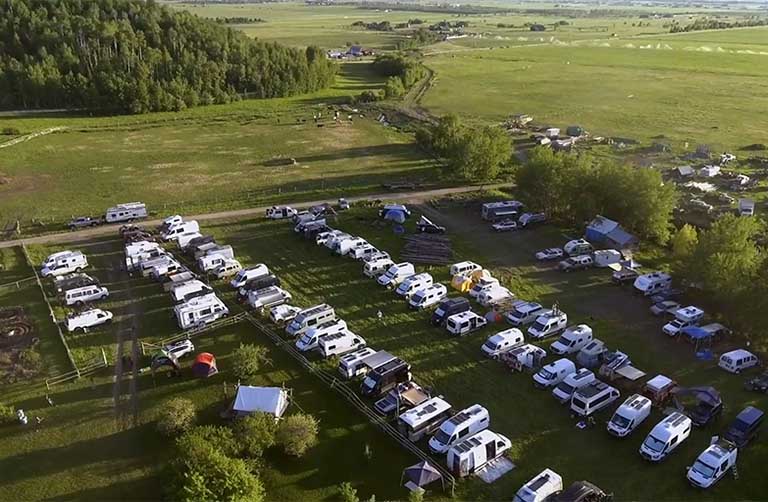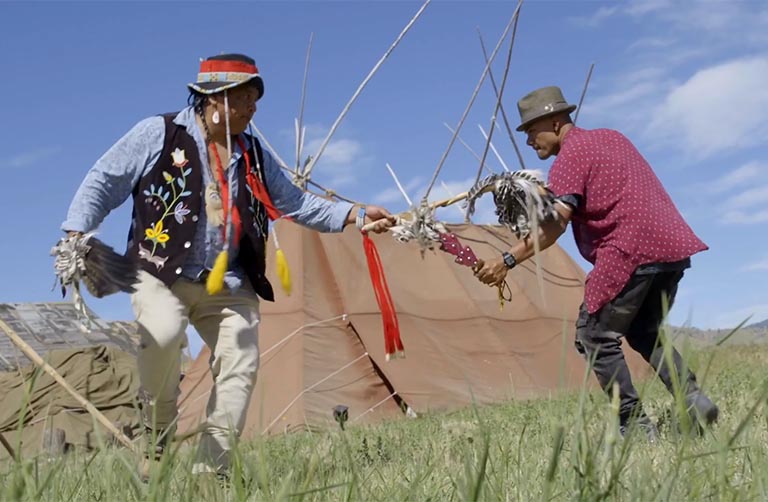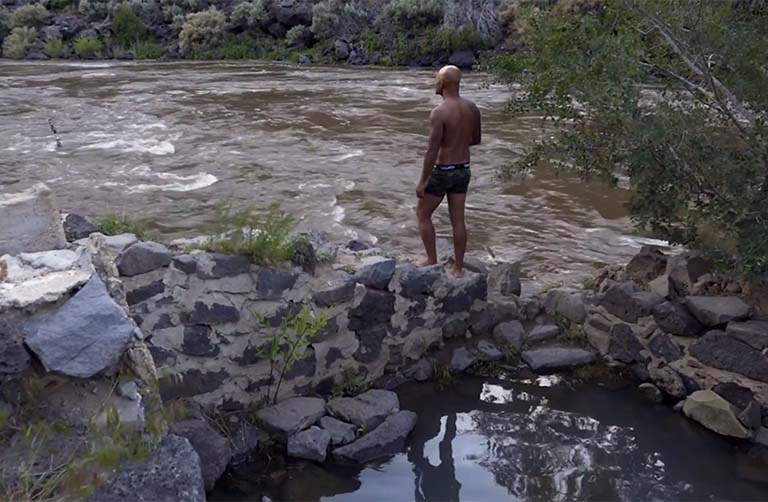Video: How to Stay Safe Traveling in US National Parks
From hiking safety to bears, in this video hear tips from travelers and locals on how to stay safe in wilderness areas across the USA.
Joel explores the USA wilderness from deserts in New Mexico to the forest of California. Its vastness makes it as dangerous as it is beautiful.
He asks travelers, van lifers and locals for their safety tips, including learning how to stay safe in remote areas, limiting and recognising danger, using the right equipment, staying hydrated and always letting people know where you’re going, who with and when you expect to be back, plus hiking safety.
Bears and big cats are just two of the animal dangers, while extremes in weather present other risks.
Ben-Alex Dupris: America's dangerous in a good way. It's still a place that you can playfully get in trouble. So enjoy the woods. Don't feed the bears.
Tristan: I would define this as like a high desert climate. It's a really cool environment, because you have all these crazy rock formations. But there's still mountains and rivers, and it's kind of like undiscovered. So we're big on skiing, biking, rafting, rock climbing. It's pretty easy for anyone to get on the trail. I'd say the two most important things are just having good shoes and knowing that you have water. From there, it's always good to have a buddy to go with. If you are going alone, at least let somebody in your hostel or hotel know, so if you're not back by the evening, at least somebody is wondering where you are.
Jak Wildman: We have little black bears here, and we have big cats. We have some mountain lions. I would definitely recommend getting a guide. Don't expect to sit in an office chair 40, 50 hours a week, and then just jump in your car and drive 300 miles to the desert, and be able to go and hike 10, 15 miles in the beating sun. That's unsafe. Anytime that you start to feel unsafe and you start to get worried, that puts you in a negative mental attitude. That can create an unsafe situation when there wasn't one previously. I guess at the same time, be able to recognize real danger when it's there.
Ben-Alex Dupris: If you go into the desert in the states, it's really easy to get lost. It's also easy to lose your cell phone signal. The weather shifts, and there's a lot of windstorms - so long sleeves and even long pants, lightweight, of course. Don't wear your wool clothes. You should have at least a gallon of water in your car because the air is so dry, that it sucks all the water out of your body. I personally would always bring an extra gallon of gasoline just in case. Because the heat evaporates your gas tank. And if you end up hundreds of miles away from a gas station, you want to have a little bit extra. Always bring some food, water, and hopefully, don't die.
Jared Worchel: Bear spray is highly recommended. If you need it and you don't have it, that's a problem. If you have it and you don't need it, that's not a problem. Also, some form of pain medication. Because if you sprain an ankle, and it's something that you can walk on, but it's extremely painful and you won't walk on it. But if you take some pain medication, you can walk that four miles. You can get to help. And then you can deal with it later. While you're hiking, to turn around and look at the trail. Especially if you come to like an intersection. Because you'll walk right through and you'll think, oh, yeah, I went right there. But when you're coming back it looks totally different. And then before the GPS watch, I also always carried surveying tape. I can put surveying tape in the tree, and then move on a little bit. I know where I came from. And obviously, collect those on the way back out. Leave no trace.
Ben-Alex Dupris: Grizzly bears will kill you. So grizzly bears are not playing around. You want to make sure that you don't have a lot of extra food and that you're cautious to stay away from them you don't approach them. so don't try to take a picture with them and get too close.
Tristan: I would define this as like a high desert climate. It's a really cool environment, because you have all these crazy rock formations. But there's still mountains and rivers, and it's kind of like undiscovered. So we're big on skiing, biking, rafting, rock climbing. It's pretty easy for anyone to get on the trail. I'd say the two most important things are just having good shoes and knowing that you have water. From there, it's always good to have a buddy to go with. If you are going alone, at least let somebody in your hostel or hotel know, so if you're not back by the evening, at least somebody is wondering where you are.
Jak Wildman: We have little black bears here, and we have big cats. We have some mountain lions. I would definitely recommend getting a guide. Don't expect to sit in an office chair 40, 50 hours a week, and then just jump in your car and drive 300 miles to the desert, and be able to go and hike 10, 15 miles in the beating sun. That's unsafe. Anytime that you start to feel unsafe and you start to get worried, that puts you in a negative mental attitude. That can create an unsafe situation when there wasn't one previously. I guess at the same time, be able to recognize real danger when it's there.
Ben-Alex Dupris: If you go into the desert in the states, it's really easy to get lost. It's also easy to lose your cell phone signal. The weather shifts, and there's a lot of windstorms - so long sleeves and even long pants, lightweight, of course. Don't wear your wool clothes. You should have at least a gallon of water in your car because the air is so dry, that it sucks all the water out of your body. I personally would always bring an extra gallon of gasoline just in case. Because the heat evaporates your gas tank. And if you end up hundreds of miles away from a gas station, you want to have a little bit extra. Always bring some food, water, and hopefully, don't die.
Jared Worchel: Bear spray is highly recommended. If you need it and you don't have it, that's a problem. If you have it and you don't need it, that's not a problem. Also, some form of pain medication. Because if you sprain an ankle, and it's something that you can walk on, but it's extremely painful and you won't walk on it. But if you take some pain medication, you can walk that four miles. You can get to help. And then you can deal with it later. While you're hiking, to turn around and look at the trail. Especially if you come to like an intersection. Because you'll walk right through and you'll think, oh, yeah, I went right there. But when you're coming back it looks totally different. And then before the GPS watch, I also always carried surveying tape. I can put surveying tape in the tree, and then move on a little bit. I know where I came from. And obviously, collect those on the way back out. Leave no trace.
Ben-Alex Dupris: Grizzly bears will kill you. So grizzly bears are not playing around. You want to make sure that you don't have a lot of extra food and that you're cautious to stay away from them you don't approach them. so don't try to take a picture with them and get too close.
Related articles
Travel Insurance
Simple and flexible travel insurance
You can buy at home or while traveling, and claim online from anywhere in the world. With 150+ adventure activities covered and 24/7 emergency assistance.
Get a quote



No Comments